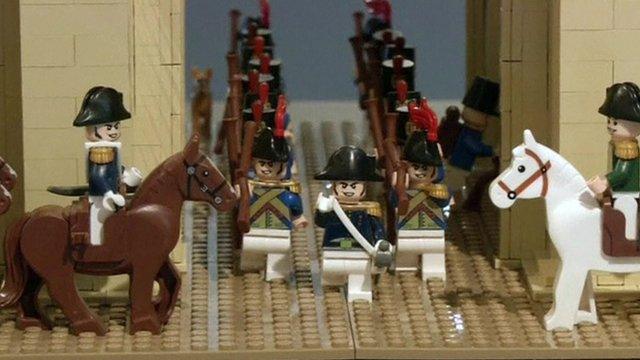Waterloo anniversary: France steers clear of Napoleonics
- Published
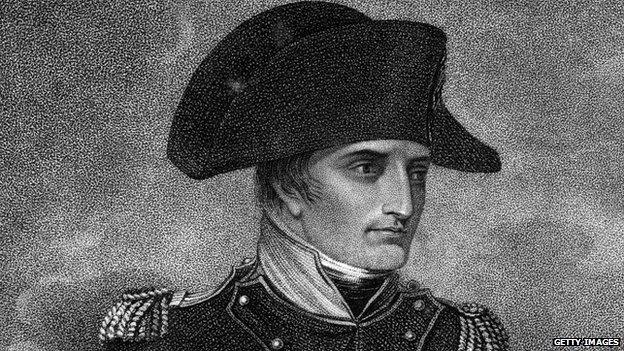
Napoleon's influence on French society is felt to this day
Before too many jokes do the rounds about France sulking over the Waterloo commemorations, let me add a couple of correctives.
It is true that Paris is sending only an ambassador to mark the last of Napoleon's battles. But then, is that so surprising?
After all, France lost. Does the UK crow about Yorktown?
More to the point, if France has little appetite to grovel over Napoleon's last humiliation, no more did it strut over his considerably more numerous triumphs.
Marengo, Austerlitz, Friedland, Wagram: Over the last 10 years the anniversaries have come round like chimes.
But apart from a bit of historical analysis here and there, the truth is that no-one in public life in France has ever made much of a deal of it.
Bad or brilliant
And that, of course, is because of the awkward position that Napoleon Bonaparte will forever play in the nation's conscience.
For all historians - from whatever country - Napoleon is someone to be argued over ad infinitum.
In the last couple of years in Britain, two biographies - by Philip Dwyer and Andrew Roberts - have taken diametrically different views of the man.
For Dwyer he is basically bad. For Roberts he is basically brilliant.
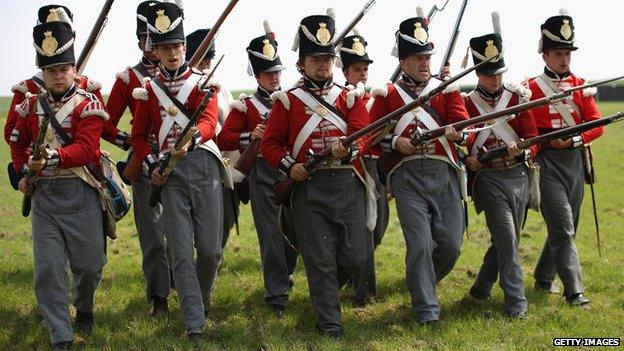
The British are holding a range of anniversary events, including this battle re-enactment
The same arguments rage in France, but with the difference that here the country still lives under his influence.
Perhaps too much is made over Napoleon's legacy in civil life. Many of his reforms - like the civil code and the setting up of departments (counties) - were coming anyway in the post-Revolutionary re-ordering.
What is more significant is the nation's memory of glory, and of greatness attached to a single heroic figure.
That idea has never disappeared from French politics - though of course many honour the idea by reviling it. For 200 years, French history has been a study in the temptations and the dangers of a national saviour.
From Napoleon stemmed his nephew, Napoleon III, then Petain and de Gaulle. But from revulsion at Napoleon came the Third Republic and the popular left.
Today's Fifth Republic is an unhappy compromise. A president elevated to quasi-monarchical status is in theory restrained by the institutions.
But today the country is in deep trouble, and the yearning for a new 'great leader' has certainly not disappeared.
Which is the main reason why French governments prefer to steer clear of Napoleonics.

Waterloo: The day that decided Europe's fate
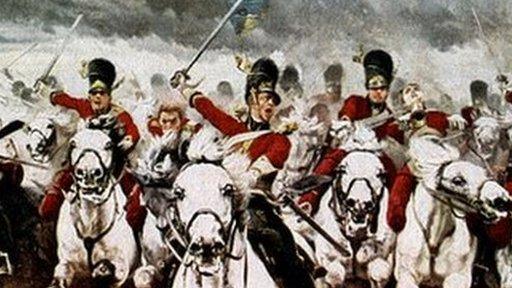
Events will mark the 200th anniversary of the battle
The Battle of Waterloo on 18 June 1815 saw the defeat of Napoleon Bonaparte by the Duke of Wellington
Both men were 46, with formidable military reputations when they faced off on the battlefield
The battle started at 11:00 and ended by 20:30
The decisive factor was the arrival of Prussian forces from the east, leading to Wellington's historic victory
A defeated Napoleon was exiled to the island of Saint Helena, where he died in 1821

- Published12 June 2015
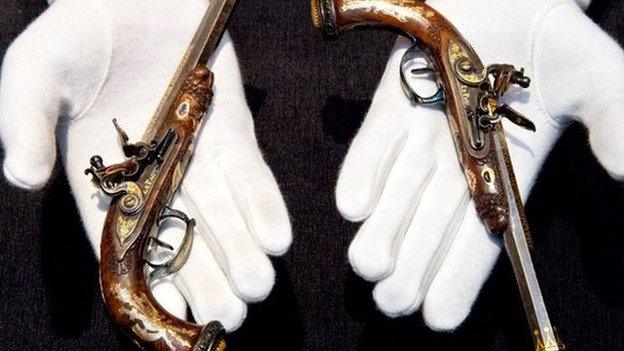
- Published15 June 2015
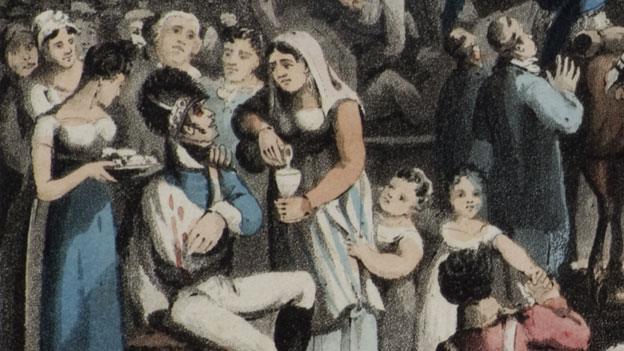
- Published30 May 2015
